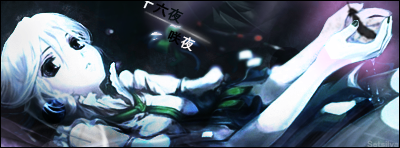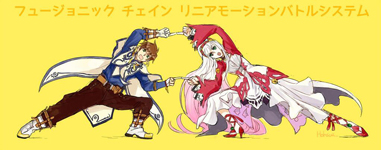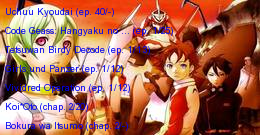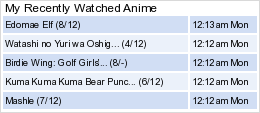This was a fantastic introductory episode, delivering a large, but compelling, amount of exposition and character development without noticeably faltering in it's execution. The setting is especially interesting, as it exudes a mysterious, bleak atmosphere, particularly during the moment when the black iron syndrome began to infect the bodies of those within the city. Despite it's common and prevalent nature, the theme of revenge is an excellent one, as this recurring element provides the potential for a variety of unexpected, emotional conflicts to arise.
The strange, uncertain nature of Aika's death and her unknown murderer provide the central, motivating factors of the story, as the main characters are haunted by their memories of her. As Mahiro appears to be entirely unaware of Yoshino's past relationship with Aika, it will be interesting to see how that hidden knowledge develops, as it seems likely to eventually create an emotional fracture between them, potentially leading to a violent confrontation. Also, another mystery that could be elaborated on in the future is the possibility that Yoshino might know quite a bit more than he's currently divulging concerning the circumstances of Aika's murder, since the gradual development of this point appears to be slightly foreshadowed.
My favorite scene, of course, was the fight between Mahiro and Evangeline, as it temporarily provided some intense, brilliantly animated action, culminating with the rather brutal finish, in which he knocks her unconscious by slamming her head to the ground. I also greatly enjoyed the final scene where the chained sphere rises out of the water, since it essentially signifies this looming, ominous threat. It's a really effective note to conclude the episode on.
Mahiro's desire to avenge the death of his sister is an intriguing motive; one that might inspire in him a violent darkness that could, if it hasn't already, consume him, potentially creating a distinctly cold, wholly unsympathetic antihero. Yoshino's personality and emotional state is a bit more uncertain and vague at the moment, since he seemed a bit detached and relatively incapable of displaying any sort of strong reaction to Aika's death. The two female characters haven't been given nearly as much development, but I definitely expect that to change within the next episode or so, as it wasn't a particularly necessary requirement for this one, since, aside from establishing Hakaze's whereabouts and importance to the narrative, as well as noting Aika's death, they weren't all that integral.
I really enjoyed the focus on Yoshino's character and perspective throughout this episode, as he's the most interesting character up to this point. I do expect Hakaze to be my favorite character eventually, and, of course, it certainly helps that she's voiced by Miyuki Sawashiro. In fact, the voice acting all around was terrific, and, even though it was certainly overwrought, I really liked the occasional quoting of Shakespeare's Hamlet. I don't particularly have any significant criticisms at the moment, but I am, however, a bit hesitant to fully embrace the story, as it certainly has the potential to devolve into a plethora of continual contrivances, which would be rather unfortunate, since the story, so far, is extremely interesting, layered, and wonderfully complex.
Ando was terrific here, as his confident direction and superb handling of the material created a combination of various, contrasting elements that rarely failed to impress. As such, the production qualities were outstanding. The direction, as well as the cinematography, was excellent, particularly in the creative framing of several large-scale moments, along with the methodical pans across various scenes. The animation was superb, especially in how meticulously the small, inconsequential movements and specific nuances were captured. This impressive attention to detail was most evident in the brief action sequence between Mahiro and Evangeline.
Despite being a bit slow and drawn-out at times, this episode was consistently well-paced, rarely lingering on a single emotion or exposition-heavy conversation for too long. I liked how the flashbacks were naturally interwoven into the story without feeling too overtly jarring, since they were rather essential in providing a certain level of insight into the emotional machinations of these characters. Oshima's orchestral score is incredible, as it illuminates the melancholic, foreboding tone beautifully, thus becoming one of the very best aspects of the show.
All in All, Zetsuen no Tempest is thoroughly impressive so far, particularly in regards to it's amazing production qualities, aided by the rather compelling narrative and intriguing set of characters. As such, it's an extremely promising start, and it definitely exceeded my expectations. I'm hopeful that, due to Ando's influence, it's immense potential isn't squandered by the story turning into an unnecessarily convoluted mess. As for now, i don't exactly know which direction the story will take, but I'm certainly excited to find out. |












 on
on 


